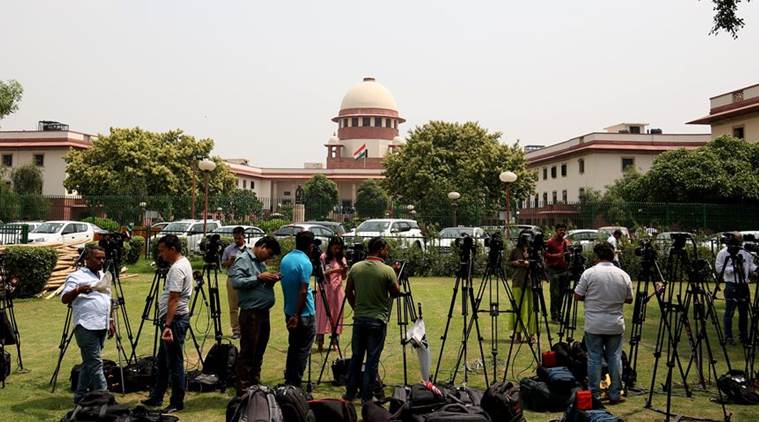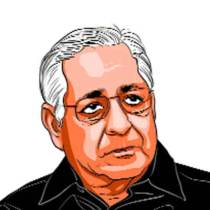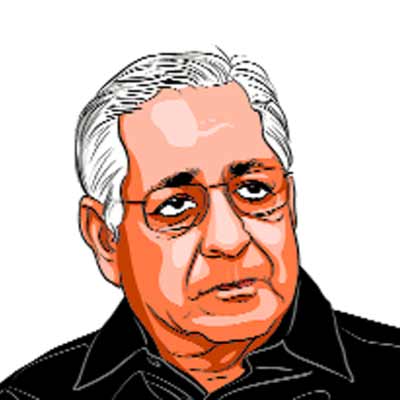The noble dissenters
Dissenting judgments on Sabarimala and Bhima Koregaon speak to the future.

In the last fortnight, the Supreme Court has delivered some landmark judgments. There have also been remarkable dissents in these judgments. (File)
Dissent is the heart and soul of democracy. When dissent is prohibited and the dissenter is penalised, totalitarianism, not genuine democracy, prevails in the country. In the last fortnight, the Supreme Court has delivered some landmark judgments. There have also been remarkable dissents in these judgments. A judge on a bench does not usually dissent from the views of his or her companion judges.
However, when a judge believes that the judgment of the Court would not be in public interest or result in subverting the Constitution or in gross violation of the fundamental rights of a group of people, he or she is constrained to write a dissenting judgment. In the words of the celebrated jurist Benjamin Cardozo, “the dissenter speaks to the future, and his voice is pitched to a key that will carry through the years”. According to Chief Justice Charles Evans Hughes of the United States Supreme Court, “a dissent in a court of last resort is an appeal to the brooding spirit of the law, to the intelligence of a future day”. Justice Frankfurter has observed that in the US Supreme Court, “dissents have gradually become majority opinions”.
The issue about the validity of the rules and practice prohibiting the entry of women in a certain age group into the Sabarimala temple came up before the Supreme Court. The majority struck down the rules on the ground that they were arbitrary and discriminated against women belonging to a certain age group without any rational basis. In the opinion of the majority, the impugned rules and practices of the Sabarimala temple smacked of untouchability, which in any form is prohibited by the Constitution.
Justice Indu Malhotra dissented from the majority view. In her judgment, the religious practice of restricting the entry of women between 10 to 50 years is in pursuance of an “essential religious practice” followed consistently at the Sabarimala temple. She further held that “the restriction on the entry of women during the notified age group in the Sabarimala temple is based on the unique characteristic of the deity, and not founded on any social exclusion”. According to Justice Malhotra, the analogy sought to be drawn by comparing the rights of Dalits with reference to entry to temples and women is wholly misconceived and unsustainable.
At the outset, I would like to express my disagreement with the reasoning and conclusion drawn by Justice Indu Malhotra in her dissenting judgment. However, what is noteworthy is that a judge recently elevated to the Supreme Court, “a junior judge” in popular Supreme Court legal parlance, dissented from the majority of senior judges on the bench. That is a glowing testimony to the strength and courage of Justice Malhotra’s convictions.
A vital issue concerning the personal liberty of persons arose before the Supreme Court in the Bhima Koregaon case. The majority did not accept the plea of the petitioners that the arrest of the activists was unjustified. It continued the house arrest of the activists till the completion of the investigation. The majority judgment is not convincing. It has overlooked many important aspects. But that is besides the point. What is noteworthy is the brilliant dissent of Justice D Y Chandrachud who, “as a matter of principle”, was unable to agree with the views expressed by the chief justice and Justice AM Khanwilkar, who were on the Bench. The dissent endorses judicial interference on core issues of liberty as the constitutional duty of the court so that justice is not compromised. Justice Chandrachud rightly reminds us that “dissent is a symbol of a vibrant democracy (where) voices in opposition cannot be muzzled by persecuting those who take unpopular causes”.
There are other passages in Justice Chandrachud’s dissent which are worth reproducing in extenso: “Our recent decisions reiterate the value of individual dignity as essential to a democratic way of life. But lofty edicts in judicial pronouncements can have no meaning to a citizen unless the constitutional quest for human liberty translates into securing justice for individuals whose freedom is under threat in specific cases.
Custodial interrogation involves the balancing of diverse and often conflicting values: The effective administration of criminal justice, an impartial process of investigation and the liberty and reputation of the individual. Conscious as the Court is of the public interest in the effective administration of criminal justice, it cannot be oblivious to the overriding constitutional concern to secure the dignity of the individual. The key to the balance between the two lies in a fair, independent and impartial investigation of crime”.
The dissent recognises that “while the investigation should not be thwarted, this is a proper case for the appointment of a Special Investigation Team. Circumstances have been drawn to our notice to cast a cloud on whether the Maharashtra police has in the present case acted as fair and impartial investigating agency. Sufficient material has been placed before the Court bearing on the need to have an independent investigation”.
Consequently, Justice Chandrachud was firmly of the view that a Special Investigation Team must be appointed and that the investigation shall be monitored by the Supreme Court and the Special Investigating Team shall submit periodic status reports to the Court, initially on a monthly basis. One hopes that Justice Chandrachud’s dissent may become the majority opinion of our Supreme Court in the years to come.
The writer is a former Attorney General of India
For all the latest Opinion News, download Indian Express App
More From Soli J. Sorabjee
- Amazing GraceAtalji made friends and disarmed his opponents..
- The Constitution was founded on theseOur founding fathers were driven by the learnings of the past, the turmoil of the present and the possibilities of the future...
- The Limits Of FreedomSedition law has been misused by over-zealous agencies. That’s no reason to scrap it..








































No hay comentarios:
Publicar un comentario